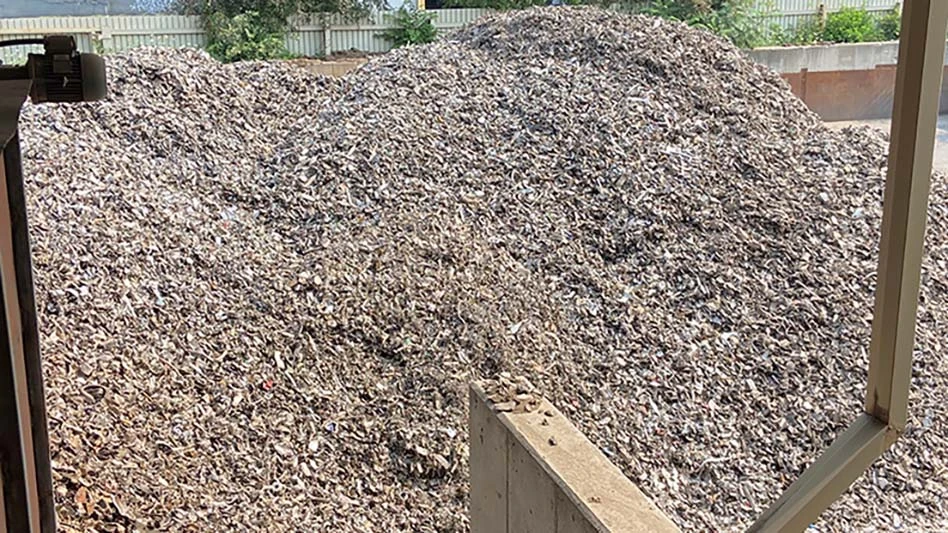The depth of the ‘structural crisis’ in Europe’s recovered textiles industry demanded that companies were paid for their services, according to Textiles Division President Frithjof W. Schepke of Schepke Konzepte GmbH in Germany. ‘This should be a top priority,’ he told delegates to the divisional meeting in Oslo on May 26.
He reminded delegates that, in the EU alone, the industry recovered some 3.5 million metric tons of textiles each year and employed 150 000 people. However, up to 30 percent business closures were being predicted for a sector beset by ‘a clear reduction in the quality of collected material’, spiraling sorting and transport costs, falling sales prices and competition from cheap new clothing from the Far East. At the same time, ill-conceived EU waste regulations were serving to block potential markets. ‘Politicians should be approached to ensure that we are paid for our services and that discriminatory regulations are eliminated,’ Schepke insisted.
Similarly powerful language was used by fellow countryman Michael Sigloch of Fachverband Textil-Recycling EV who said: ‘We are obstructed and treated like the poor stepchild who nobody wants.’
Reports from France, Germany and the UK echoed the President’s review of market conditions. Meanwhile, divisional Honorary President Klaus Löwer of Hans Löwer Recycling GmbH in Germany lamented that governmental support given to recovered textile companies in the USA was not available to their EU counterparts.
The meeting also heard a report prepared by John Bull of Smiths in Australia. In his presentation Bull highlighted difficult domestic market conditions. ‘We have had to lower prices just to stop our warehouse overflowing,’ he stated. ‘Australia is discussing a free trade agreement with the United States. Currently, the problem is they want free access to Australian markets but are not prepared to offer free access to Australian goods into the US.’
The EU’s DG Enterprise representative at the meeting, Alberto Canevali, recognized the severity of the problems afflicting the European used textiles sector and agreed: ‘We have to get together to work on this.’ However, on the specific issue of customs rules, he regretted that interpretation of provisions differed ‘nationally, regionally and among different authorities’. He added: ‘It is a general problem - it is not only affecting your sector.’
On a brighter note, he confirmed early moves within the EU to ‘re-table’ the concept of ‘waste’ and its definition, with the aim of incorporating an economic and competitive dimension. He added that the scope of discussions would extend to recycling and that BIR had been invited to participate. ‘We are recognizing that this is not just an environmental issue,’ he said.
Less promising news was provided by BIR’s Environmental & Technical Director Ross Bartley who reported on the possibility of an extension of the Basel Convention’s scope to cover non-hazardous as well as hazardous ‘wastes’. The OECD, meanwhile, was considering a widening of environmentally sound management to cover non-hazardous ‘wastes’. The latter threatened to cost the recycling industry up to Euro 15 million in annual consultants’ costs linked to third party verification. He told delegates: ‘We are trying to keep this to just hazardous waste.’
Get curated news on YOUR industry.
Enter your email to receive our newsletters.
Latest from Recycling Today
- Ship dismantlers navigate new regulatory regimen
- Gershow announces several community involvement projects
- McKinsey identifies engineering polymers as a recycling opportunity
- Metso acquisition focuses on mill liner recycling
- Malaysian customs office seizes scrap containers
- Lindner establishes Brazil subsidiary
- Tire recycling veteran predicts growth in pyrolysis
- ShearCore adds FC95 to concrete processor line






